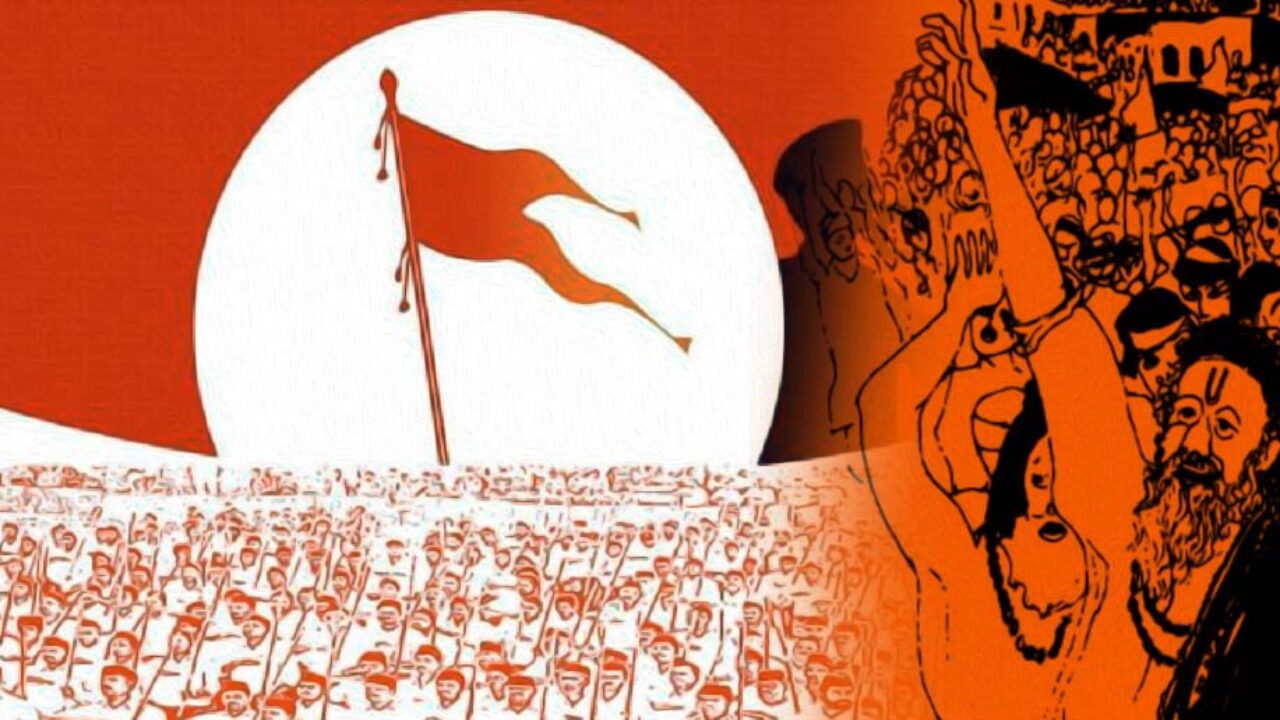
On every 26th of January, India celebrates its Republic Day, commemorating the adoption of its constitution and its transition to a democratic republic. But beneath the celebratory facade, a disquieting reality is taking root. India, once hailed as a vibrant secular democracy, is increasingly succumbing to the forces of Hindu nationalism, morphing into a state eerily reminiscent of Nazi Germany, with aspirations of becoming a Hindu Rashtra, a Hindu supremacist state. This article delves into the concerning transformation of India, scrutinizing the BJP’s “Hindu First” agenda, the plight of minorities, and the potential consequences of unchecked Hindu majoritarianism.
Nazification of India: The BJP’s Hindutva ideology, espoused by its parent organization, the Rashtriya Swayamsevak Sangh (RSS), bears striking similarities to Nazi Germany’s ideology. Both promote ethno-nationalism, prioritizing the Hindu majority and demonizing minorities, particularly Muslims. The RSS, much like the Nazi SA, operates as a paramilitary force, fostering a climate of fear and intimidation. The BJP government’s policies, from the Citizenship Amendment Act (CAA) that discriminates against Muslim immigrants to the National Register of Citizens (NRC) that threatens to strip citizenship from millions, echo Nazi policies of exclusion and marginalization.
Modi’s India in the Footsteps of Nazi Germany: The parallels extend beyond mere ideological affinity. The BJP government, like the Nazis, has employed tactics of suppression and violence against its perceived enemies. Mob attacks on Muslims, Christians, and Dalits have become commonplace, often met with state apathy or even tacit approval. The Kashmir conflict, where Indian forces stand accused of gross human rights violations against the Muslim-majority population, draws chilling comparisons to Nazi atrocities.
An Impending Muslim Holocaust? Muslims in India, constituting over 200 million people, are increasingly relegated to the status of second-class citizens. They face systemic discrimination in employment, education, and housing. Hate speech and demonization campaigns in the media and public sphere create an atmosphere of constant fear and vulnerability. The CAA and NRC, coupled with the Hindu nationalist rhetoric of the BJP leadership, have instilled a deep sense of insecurity among Indian Muslims, questioning their very place in their own country. The potential for a full-blown Muslim Holocaust in India cannot be entirely dismissed in light of the current trajectory.
Second-Class Citizens: The plight of other minorities, including Christians, Dalits, and Adivasis, is no less concerning. Christian churches have been vandalized and attacked, often with the tacit support of local authorities. Dalits, facing continued caste-based discrimination and violence, find little solace in a system that prioritizes Hindu majoritarianism. Adivasis, whose land and resources are increasingly targeted by the government and corporations, are dispossessed and marginalized. The notion that India is a safe haven for minorities is rapidly becoming a dangerous delusion.
The Sponsor of Terrorism: While India portrays itself as a victim of terrorism, its own actions raise serious concerns about its own involvement in sponsoring and supporting terror groups. The involvement of Hindutva groups in cross-border terrorism against Pakistan, the use of proxy groups in Kashmir and other regions, and the state’s tolerance of hate speech and violence against minorities paint a picture of a country actively fomenting instability in the region.
A Threat to Regional Peace & Stability: India’s aggressive foreign policy, fueled by its Hindu nationalist ambitions, poses a significant threat to regional peace and stability. The border disputes with China, the water conflict with Pakistan, diplomatic spat with Maldives and its interventionist policies in Afghanistan, Bangladesh and Nepal all contribute to an atmosphere of tension and mistrust. India’s militaristic approach, coupled with its nuclear arsenal, makes it a dangerous player on the world stage.
The Regional Troublemaker: India’s domestic turmoil spills over into the region, creating a breeding ground for extremism and instability. Its aggressive pursuit of Hindutva ideology alienates its Muslim-majority neighbors, raising tensions and jeopardizing regional peace and stability. The persecution of minorities in India inspires similar actions against minorities in neighboring countries, leading to a vicious cycle of hate and violence. Furthermore, India’s support for right-wing Hindu nationalist groups across the region has the potential to destabilize fragile democracies and exacerbate existing tensions.
Intolerance & Fascism: The rise of Hindu nationalism in India has led to a growing intolerance towards dissent and criticism. Journalists, academics, and activists who dare to speak out against the government or its policies face harassment, intimidation, and even violence. The stifling of free speech and the erosion of democratic institutions are hallmarks of a fascist regime, and India under Modi is increasingly exhibiting these alarming tendencies.
From India to Hindia & to Endia: The transformation of India from a secular democracy to a Hindu supremacist state can be seen as a regression from “India” to “Hindia,” a land defined not by its diverse citizenry but by its Hindu majority. If this trajectory continues unchecked, the end result could be “Endia,” a nation consumed by religious extremism and ethnic strife, posing a grave threat to itself and the region.



















Leave a Reply